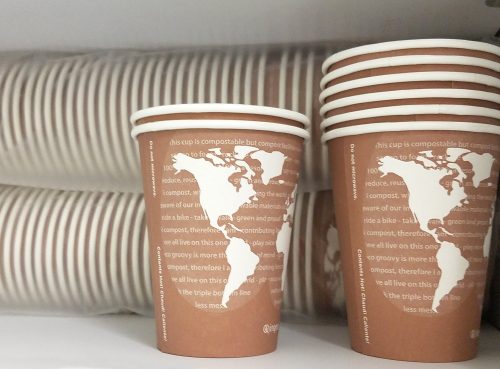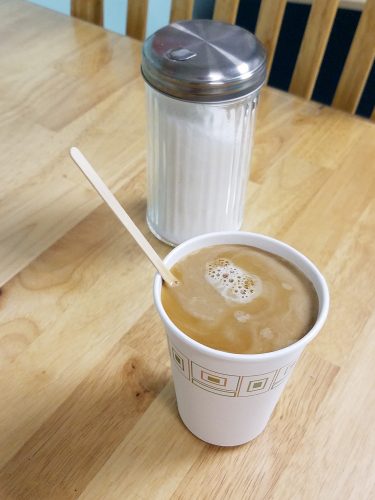Two years ago, the organizers for our “Trashformations” art contest asked if we could make the reception a zero waste event. Museum Educator Tiffany Ireland decided to take the request to the next level for her fellow event organizers. Could we have a goal of all events being zero waste?
“We’re a natural history museum,” Tiffany said. “People expect it of us. And the best part is that the Museum staff are excited by the new composting program. They want to learn about it and how to help make the Museum as environmentally friendly as possible.”

There was no blueprint for zero waste events on the University of Florida campus that we knew of. It took a lot of research, and many phone calls to track down the departments and people that coordinate recycling and composting services. But it was exciting to find that there were so many people interested in the same goal.
In the two years since that “Trashformations” event we’ve learned a lot. Because of UF’s size, and the campus community’s progressive attitude about reducing our environmental impact, the UF groundskeepers have developed a fantastic large-scale composting program.
Many materials that are not good for home composting are perfectly safe for large-scale composting, like paper towels, compostable paper cups and plates, bamboo coffee stirrers, meat, eggs and more. And because the service is available on campus to select high-volume facilities, the system of delivering and removing composting receptacles for events is as easy as having normal garbage picked up.

The learning curve for our staff and volunteers was minimal. Once it was clear how to efficiently sort waste into recycling, composting and liquid, it became a standard practice at most of our in-house and private events.
We’re encouraging all of our Museum rental events toward zero waste, which includes wedding receptions and parties. Right now it’s voluntary for caterers, but we’re finding they’re already exploring these options as more and more venues and clients are requesting eco-friendly alternatives. Our next goal is to move our public events toward compostable and recyclable waste only.
The cost for compostable plates, cups and utensils has dropped significantly in the last few years—many of these are already available at grocery stores alongside the regular plastic-ware. Our challenge will be in developing simple and intuitive ways to communicate the recycling and composting options at busy Museum events.
Not only is the Museum full of creative and innovative thinkers, everyone here is committed to the end goal of zero waste. We’re up to the challenge of a more environmentally responsible Florida Museum!